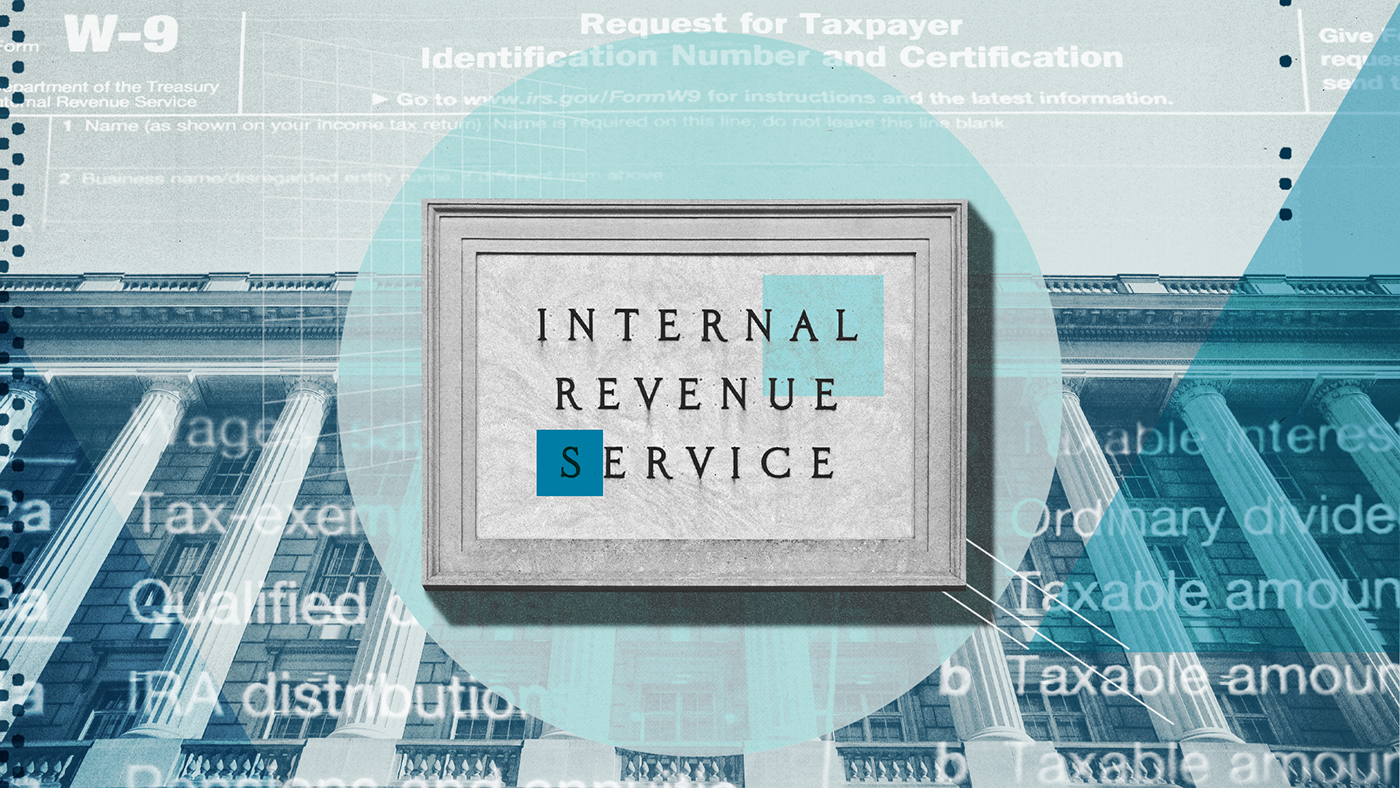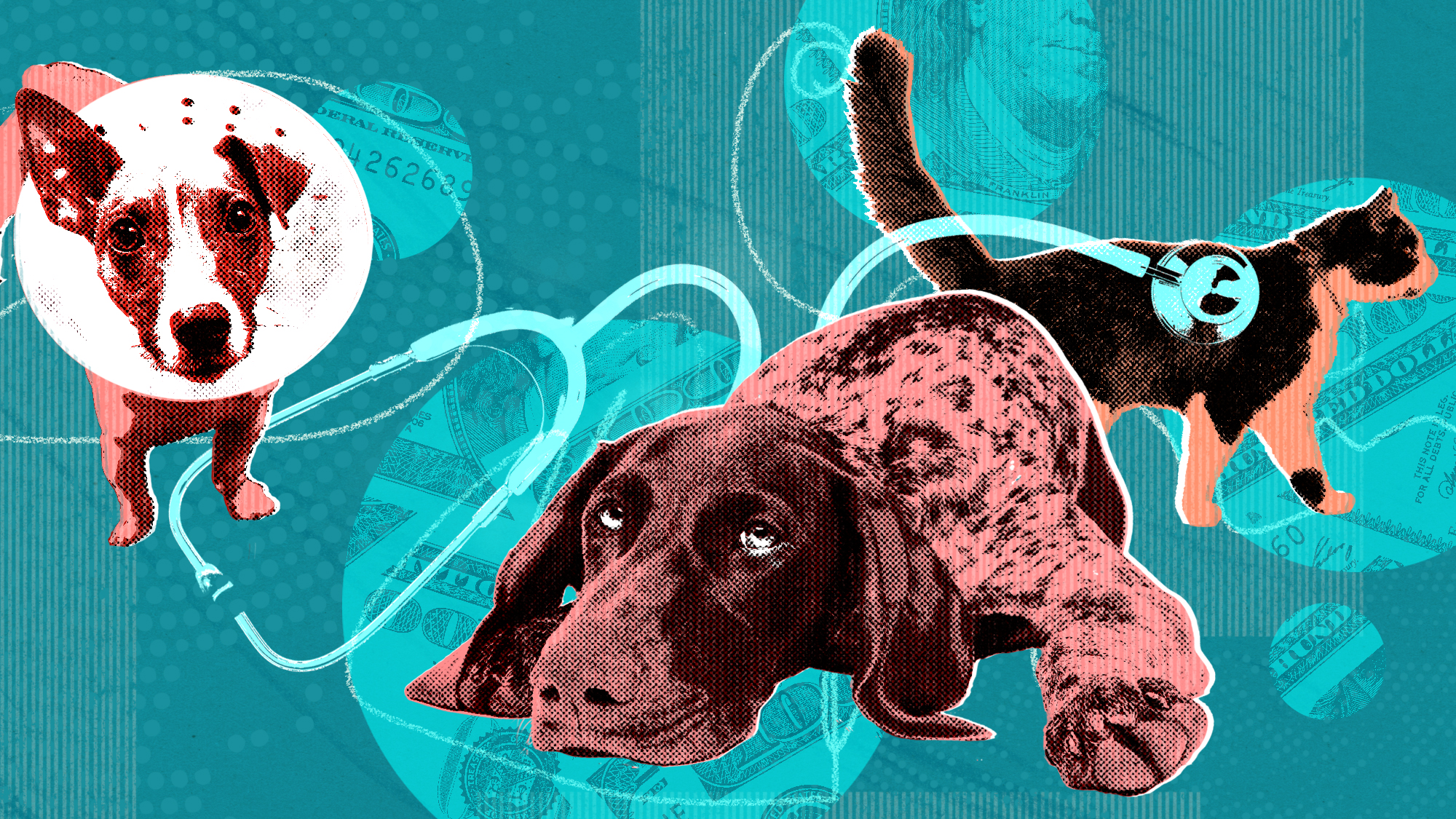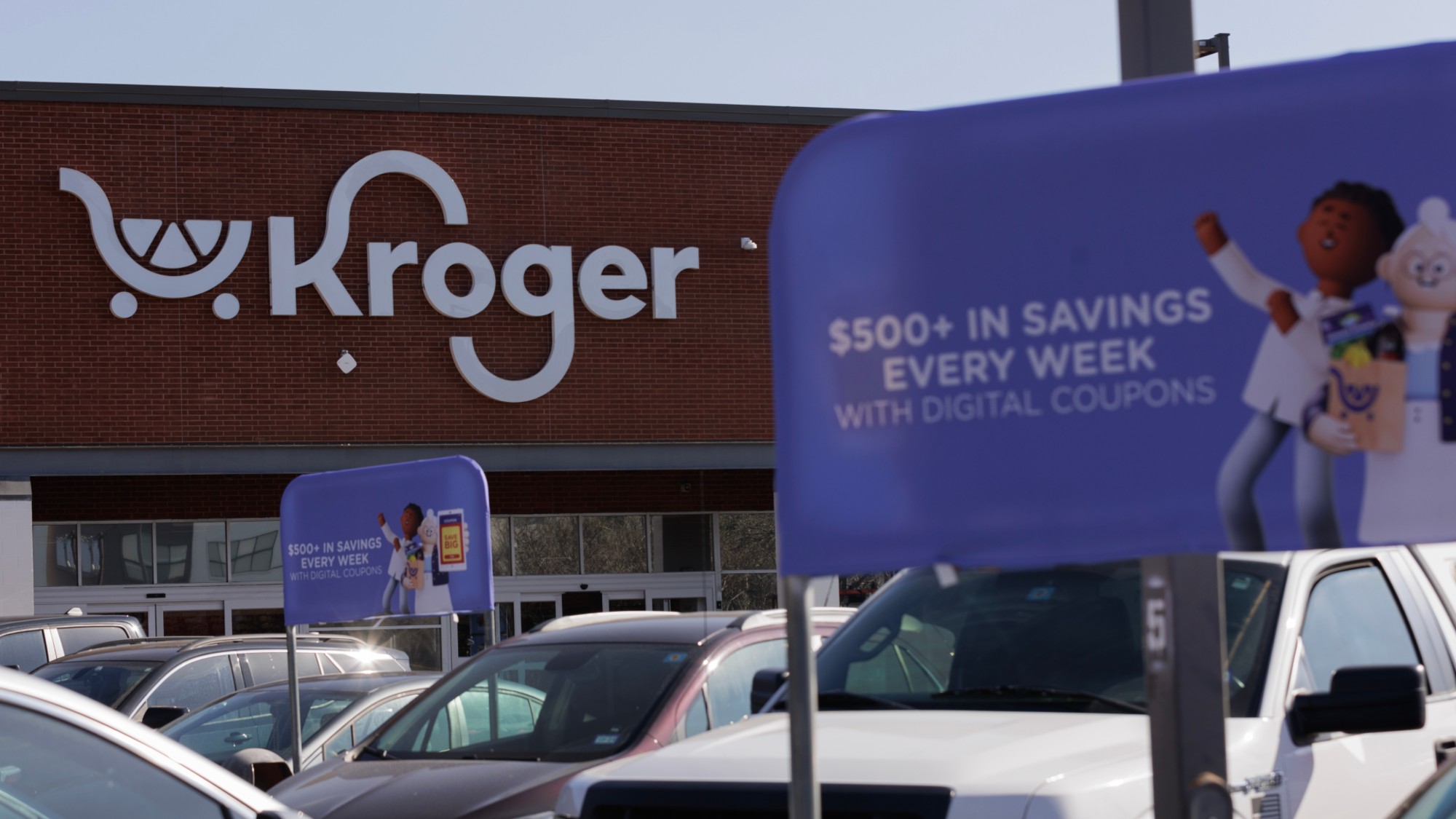Will the IRS's free online tax filing program kill H&R Block and TurboTax?
The $14 billion tax-preparation industry is not amused


A free daily email with the biggest news stories of the day – and the best features from TheWeek.com
You are now subscribed
Your newsletter sign-up was successful
The Internal Revenue Service is planning to test out new software in 2024 that will let taxpayers file their returns online for free, pitting the IRS more directly against the $14 billion tax-preparation industry dominated by Intuit's TurboTax and H&R Block.
The IRS and commercial tax-prep services reached a deal in 2006 in which a number of the tax-filing companies agreed to provide free services for taxpayers earning $73,000 or less. In return, the IRS was barred from creating its own online tax-filing service until 2019. With that deal expired, President Biden and congressional Democrats gave the IRS $15 million in 2022 to explore the feasibility, cost and interest level for a government-run Direct File program.
The IRS's first report to Congress, released earlier this month, found that "many taxpayers are interested in using a free IRS-provided tool to prepare and file taxes and that the agency is technically capable of delivering a Direct File program," the IRS stated in a press release. In fact, The Washington Post reported, the IRS has already "quietly built its own prototype system to allow Americans to file tax returns digitally and free of charge," with help from the White House's U.S. Digital Service consultancy.
The Week
Escape your echo chamber. Get the facts behind the news, plus analysis from multiple perspectives.

Sign up for The Week's Free Newsletters
From our morning news briefing to a weekly Good News Newsletter, get the best of The Week delivered directly to your inbox.
From our morning news briefing to a weekly Good News Newsletter, get the best of The Week delivered directly to your inbox.
"Filing taxes can be time-consuming and difficult, and the IRS is committed to delivering significantly improved services by providing taxpayers with tools, information and assistance to make it easier to comply with their tax filing obligations," the IRS noted in its report. Should TurboTax be nervous?
What are the commentators saying?
IRS Commissioner Danny Werfel told reporters that "the IRS cannot run the tax system alone," and any changes will be voluntary. "We rely on an extensive network of partners across tax professional groups, the software communities, the payroll community and countless dedicated organizations that work directly with taxpayers," he said. "This report changes none of that."
"Taxpayers will always have choices for how they file their taxes," Werfel added. "They can use tax software. They can use a trusted tax professional. They can use a paper tax return." But the IRS surveys also found that 72% of taxpayers are "very interested" or "somewhat interested" in a free system that allows them to file directly to the government. Many other countries have such government-run online tax-filing systems, including Australia, Chile and Estonia.
U.S. taxpayers already have several free options, including filling out the IRS's tax forms on paper or online and using the Free File options at participating commercial sites. Some 70% of taxpayers are eligible to use Free File software, but fewer than 3% do, according to the Government Accountability Office. "That's because the tax-prep companies sabotaged the program, so they could keep raking in money," said Sen. Elizabeth Warren (D-Mass.). TurboTax paid a $141 million settlement in 2022 to people who were eligible for free filing but were steered away to costly upgrades.
A free daily email with the biggest news stories of the day – and the best features from TheWeek.com
Even with the new Direct File initiative, "the established position of companies such as TurboTax and H&R Block could limit how many taxpayers use an IRS program beyond the pilot phase," Richard Rubin reported in The Wall Street Journal. "They have invested heavily in technology, marketing and customer loyalty."
At the same time, they do fear that eventually the IRS could expand its own program in ways they cannot, Rubin added. "Using the information it has from past returns and employers, the IRS could create first drafts of returns that taxpayers could check and submit." A 2022 study by Treasury Department economists found that the IRS could accurately fill in nearly half of a person's tax returns with the information it already has, for example.
Shares of H&R Block and Intuit dropped after the IRS released its feasibility report.
What's next?
Intuit and H&R Block — which have spent $25.6 million and $9.6 million, respectively, on lobbying since 2006, according to The Associated Press — stated that they plan to fight the IRS's Direct File initiative, calling it redundant, unnecessary, expensive and potentially harmful for consumers. Some Republican lawmakers, taxpayers polled by the IRS, and right-leaning advocacy groups agree.
"It would be a conflict of interest to have the agency that collects, investigates and enforces taxes to also be a tax preparer," Intuit CEO Sasan Goodarzi argued. "The taxpayer is looking for the biggest refund possible, but for the IRS that's not their job to look for the biggest refund for filers," said David Williams at the conservative-leaning Taxpayers Protection Alliance. "We're concerned about that conflict of interest but also really the ability of the IRS to do this."
Some congressional Republicans also pointed to the reports of a working Direct File system as evidence the IRS has already decided to move forward with a free filing option, exceeding its legal authority. The IRS report stated that this "functioning internal prototype" is simply being used for usability testing and user research to supplement taxpayer surveys before the pilot program begins in January 2024.
And finally, when all the fighting is done, the IRS still has to build a product for tax filers to test out in a pilot program that hasn't yet been mapped out.
There is a big chasm between deciding to create a safe, secure and user-friendly tax-filing system and actually delivering it to taxpayers, and it's easy to imagine things going terribly wrong, as anyone who remembers the disastrous Obamacare enrollment site rollout can attest. "The IRS has long struggled with aging technology," Rubin wrote at the Journal. "But it has at times nimbly implemented new programs, such as economic stimulus payments and monthly child tax credits during the Covid pandemic."
Peter has worked as a news and culture writer and editor at The Week since the site's launch in 2008. He covers politics, world affairs, religion and cultural currents. His journalism career began as a copy editor at a financial newswire and has included editorial positions at The New York Times Magazine, Facts on File, and Oregon State University.
-
 6 of the world’s most accessible destinations
6 of the world’s most accessible destinationsThe Week Recommends Experience all of Berlin, Singapore and Sydney
-
 How the FCC’s ‘equal time’ rule works
How the FCC’s ‘equal time’ rule worksIn the Spotlight The law is at the heart of the Colbert-CBS conflict
-
 What is the endgame in the DHS shutdown?
What is the endgame in the DHS shutdown?Today’s Big Question Democrats want to rein in ICE’s immigration crackdown
-
 Trump wants a weaker dollar, but economists aren’t so sure
Trump wants a weaker dollar, but economists aren’t so sureTalking Points A weaker dollar can make imports more expensive but also boost gold
-
 The longevity economy booms as people live longer
The longevity economy booms as people live longerThe Explainer The sector is projected to reach $27 trillion by 2030
-
 Texas is trying to become America’s next financial hub
Texas is trying to become America’s next financial hubIn the Spotlight The Lone Star State could soon have three major stock exchanges
-
 How could worsening consumer sentiment affect the economy?
How could worsening consumer sentiment affect the economy?Today’s Big Question Sentiment dropped this month to a near-record low
-
 Musk wins $1 trillion Tesla pay package
Musk wins $1 trillion Tesla pay packageSpeed Read The package would expand his stake in the company to 25%
-
 From candy to costumes, inflation is spooking consumers on Halloween this year
From candy to costumes, inflation is spooking consumers on Halloween this yearIn the Spotlight Both candy and costumes have jumped significantly in price
-
 Rising costs are making it harder for people to afford pets
Rising costs are making it harder for people to afford petsUnder the Radar Shelters are filling up as a result
-
 Grocery stores under fire for overcharging during cost-of-living crisis
Grocery stores under fire for overcharging during cost-of-living crisisThe Explainer A recent investigation has put the spotlight on Kroger, but it is not the only chain being pinpointed
